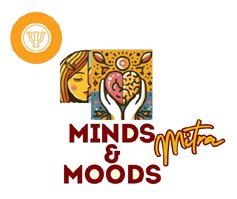Changing Your Mind, Changing Your Life: An Introduction to Cognitive Behavioral Therapy (CBT) 🧠
Cognitive Behavioral Therapy (CBT) is one of the most widely used and effective forms of psychotherapy. It is a practical, goal-oriented approach that focuses on the powerful connection between our thoughts, feelings, and behaviors. The core principle of CBT is that our perception of a situation, rather than the situation itself, determines how we feel and act. A psychotherapist or mental health counsellor uses CBT to help individuals identify and change the negative thinking and destructive behaviors that contribute to their problems.
A Trusted Professional in Nagpur: Rrimi Bodalkar
For those seeking a highly skilled psychotherapist in Nagpur, Rrimi Bodalkar is an excellent choice. As a Sr. Mental Health Counsellor, she holds an M.A. in Psychology (Counselling) and a PGDMH (Clinical), providing her with a robust foundation in clinical practice. Her specialization in CBT, REBT & DBT (Specialised) demonstrates her expertise in these highly effective therapeutic modalities. She is also an NSDC Certified professional in Psychometric Analysis & Learning Style Assessment, allowing her to provide a holistic and data-driven approach to personal counselling, whether a client needs confidence building counselling or help with negative thinking. Rrimi Bodalkar is an experienced professional who can provide a wide range of services, from anger management to career counselling.
Why CBT is So Effective: Symptoms & Causes
People often seek Cognitive Behavioral Therapy when they are struggling with a mental health issue or a persistent behavioral problem. The symptoms that suggest CBT may be a good fit include:
- Emotional Distress: Unmanaged anxiety, panic attacks, or persistent sadness and feelings of hopelessness associated with depression.
- Unhealthy Behaviors: Engaging in compulsive behaviors, acting out in anger (anger management counselling), or avoiding social situations due to fear.
- Relationship Problems: Recurring conflicts in relationship counselling, marriage counselling, or couple therapy stemming from unhelpful thought patterns or communication issues.
- Coping Difficulties: Struggling to manage workplace stress, burnout, or the emotional fallout from a life transition.
The causes of these issues often lie in ingrained negative thinking patterns. For example, a person with a fear of public speaking may believe, “Everyone will judge me,” which leads to anxiety and avoidance. CBT helps to identify and challenge these thoughts at their root, leading to more productive behaviors and improved well-being.
The Procedure of Treatment: A Collaborative Process
The procedure of treatment for Cognitive Behavioral Therapy is a collaborative process between the client and the therapist. It is highly structured and focuses on skill-building.
- Initial Assessment & Psychoeducation: The psychologist begins by assessing the client’s specific concerns. The therapist then explains the CBT model, helping the client understand how their thoughts are connected to their feelings and actions.
- Thought Identification: The client learns to become an observer of their own thoughts. The therapist provides tools to help them identify automatic, often negative thinking patterns that occur in specific situations.
- Cognitive Restructuring: This is a core part of CBT. The client and therapist work together to challenge these negative thoughts. This can involve asking questions like, “What is the evidence for this thought?” or “Is there another way of looking at this situation?”
- Behavioral Experiments: The client is encouraged to test their new thoughts and beliefs in real-world scenarios. For example, a person with public speaking anxiety might start by giving a short speech to a family member to see that their fear is not realized. This is a form of behavioral therapy that builds confidence.
- Skill Building: The therapist teaches the client practical coping skills, such as relaxation techniques for workplace stress, communication strategies for relationship counselling, and problem-solving skills for managing difficult situations.
Frequently Asked Questions (FAQ’s)
Q1: How long does CBT take?
A: CBT is generally a short-term, goal-oriented therapy. The duration can vary, but many individuals see significant improvement within 12-20 sessions, making it a very efficient form of treatment.
Q2: Is CBT only for severe mental health issues?
A: No. While highly effective for serious conditions like PTSD counselling or trauma therapy, CBT is also a powerful tool for everyday challenges like school stress, burnout, and personality development counselling.
Q3: Can CBT be used for children?
A: Yes. CBT can be adapted for children by a child psychologist, often using play and other creative methods to help them understand their thoughts and feelings. It’s often used as support for special needs children to help them manage their behavior.
Q4: Is CBT the only type of therapy that helps with negative thinking?
A: No, other therapies also address negative thoughts. However, CBT is specifically known for its structured, focused, and evidence-based approach to identifying and challenging these thought patterns. Rational Emotive Behavior Therapy (REBT), for example, is a direct offshoot of this model.
Q5: Will my therapist give me homework?
A: Yes, homework is a key component of CBT. It helps you practice the skills learned in therapy in your daily life, which is essential for making lasting change and a core part of the procedure of treatment.

